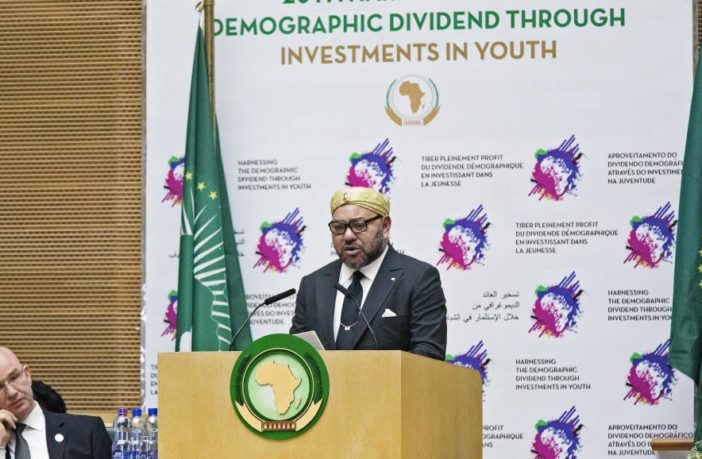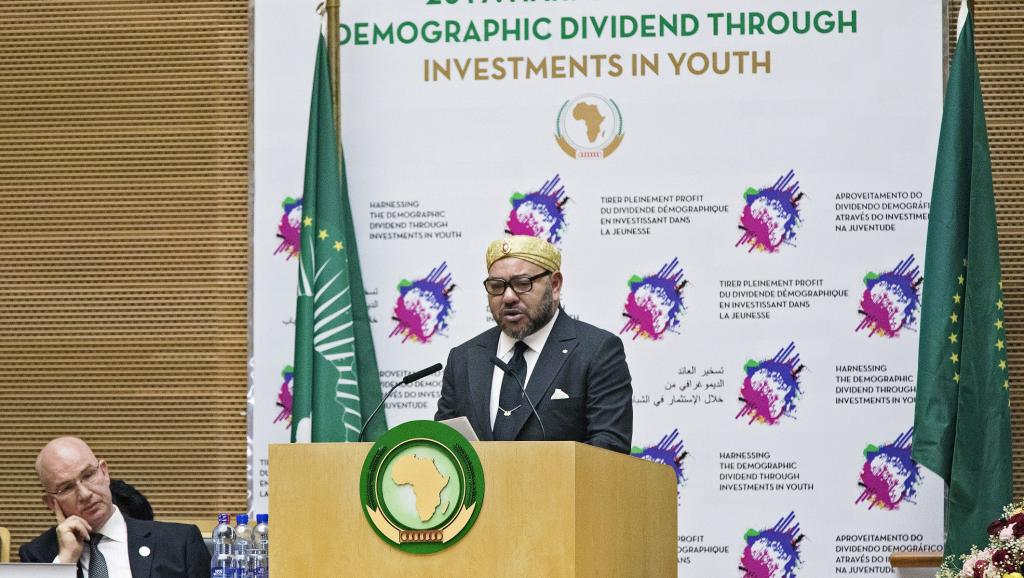Middle East Online
By Saad Guerraoui
Rabat is expected to send an ambassador to Pretoria — the first in 13 years — after Moroccan King Mohammed VI met with South African President Jacob Zuma in late November.
Morocco’s renewed diplomatic ties with South Africa may consolidate its efforts to gather support for its position on the issue of Western Sahara, analysts said.
Rabat is expected to send an ambassador to Pretoria — the first in 13 years — after Moroccan King Mohammed VI met with South African President Jacob Zuma on the sidelines of the African Union-European Union summit in late November.
Morocco recalled its ambassador to South Africa in 2004 after Pretoria’s recognition of the Sahrawi Arab Democratic Republic (SADR), another name for the disputed Western Sahara.
Morocco annexed Western Sahara in 1975 and maintains it is an integral part of the kingdom. The Polisario Front began an armed conflict with Morocco for an independent state that lasted until the United Nations brokered a ceasefire in 1991.
Rabat has proposed a form of autonomy under Moroccan sovereignty for the vast territory, which has fewer than 1 million inhabitants. The proposal was rejected by the Polisario Front, which insists on the right of the Sahrawi people to self-determination in a UN-monitored vote.
Fuelling the latest diplomatic tussle between the Algeria-backed Polisario movement and Rabat was South African authorities last May seizing a Moroccan ship carrying 50,000 tonnes of phosphate to New Zealand after the Polisario complained it was illegally transporting cargo from Western Sahara.
The ship’s seizure sparked a diplomatic crisis between Rabat and Pretoria.
“Mending ties with South Africa is crucial to Morocco’s offensive to regain more support among African countries or at least have them neutral with regards to the Western Sahara issue,” said Ali Bahaijoub, editor of the London-based North South magazine.
“South Africa previously formed the pro-Algerian axis Pretoria-Abuja-Algiers, but because of the political vacuum in Algeria caused by the ever-ailing President [Abdelaziz] Bouteflika and the fall in oil prices, alliances are shifting in favour of Morocco being the most important foreign investor in Africa last year.”
Mountacir Zian, director-general of the Mediterranean Company of Analysis and Strategic Intelligence in Rabat, said the meeting between King Mohammed VI and Zuma marked a turning point in Morocco- Africa diplomacy.
Zuma’s decision is likely to cause political friction within South Africa’s African National Congress (ANC), which issued a statement reaffirming unwavering support for the Polisario Front and the party’s international relations officer deplored Zuma’s mending ties with Morocco.
“The ANC is one of the strongest supporters of the Polisario Front in both Africa and internationally through the socialist networks, which may complicate the offensive against the separatist movement,” said Zian.
Morocco has also addressed diplomatic ties with Angola, another backer of the SADR following a meeting between King Mohammed VI and Angolan President Joao Lourenco in Abidjan.
“A new relationship between Morocco and Angola and South Africa will be important in the sense that it will bring in a new dawn in Morocco’s relations with southern African countries that have been the flag-bearers of the Algeria-backed Polisario’s African diplomacy,” said Bahaijoub.
“If Morocco manages to placate them and convince them to remain neutral, Polisario will be out of the [African Union] AU sooner than later,”
Since officially requesting to rejoin the African Union in September 2016, after an absence of almost 30 years from the bloc, Morocco has conducted a diplomatic offensive that has led to a series of trade agreements, investments and memoranda, even with countries, such as Nigeria, Rwanda and Ethiopia that back the SADR.
Bahaijoub said investment is the new strategy to convince African countries to move away from ideological divides that had marked African relations in recent decades.
“The AU is heading towards a more pragmatic approach to south-south cooperation as new leaders have realised that only Africans can help boost their economies and not European or other powers,” he said. “South-south cooperation, security and solidarity are crucial to the future of the continent and the prosperity of its peoples.”
Zian warned that some countries still supported the SADR despite Morocco’s investments in them.
“Do not forget the case of Ethiopia, which, despite the signing of a contract of almost $3 billion for the construction of a fertiliser plant, has not changed its position vis-a-vis the Polisario while maintaining the support and recognition of SADR,” he said.
Saad Guerraoui is a regular contributor to The Arab Weekly on Maghreb issues.








